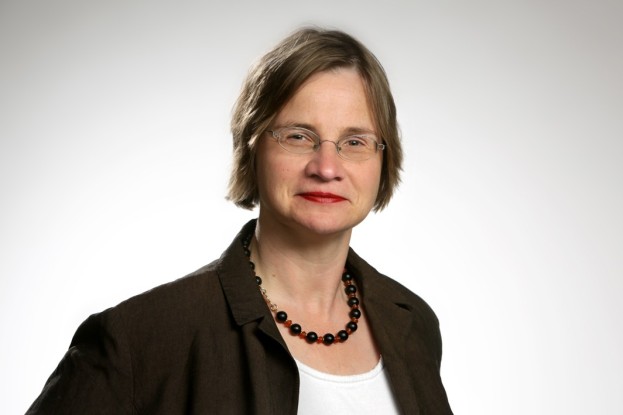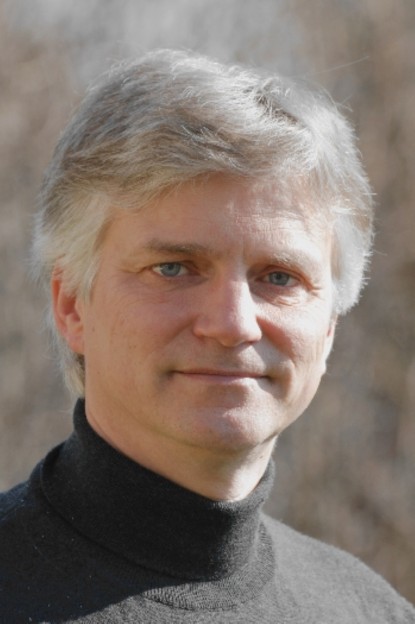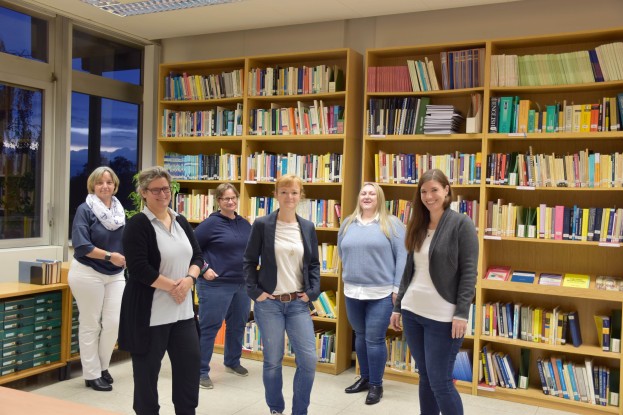General information
Your degree programme, field of study, examination regulations version and (from PO 2018) minor subject version are relevant for the choice of minor subject. Please be sure to read the general information. There you will also find the number of credit points (CP) to be earned. Modules not listed here are possible with approval.
Please note: Not everything you can choose in TUCaN can also be included in the degree programme.
Due to a change in the study regulations of the minor subject, for example, certain module combinations may not be possible (because they overlap too much). In case of doubt, please ask for approval of a voluntary examination plan or ask our study coordinator.
Students with minor subject physics and with examination regulations from 2015 and older please infomr themselces directly on the pages of the Department of Physics.
| Module name | CP | Module number | |
|---|---|---|---|
| Elective (freely selectable) |
Physik I |
7 | 05-11-1030 |
| Physik II | 7 | 05-11-1031 | |
| Physik III | 7 | 05-11-1032 | |
| Physik IV | 5 | 05-11-2014 | |
| Physik V | 5 | 05-11-2015 | |
| Physik VI | 5 | 05-11-2016 | |
| Theoretische Physik I: Klassische Mechanik | 8 | 05-12-3040 | |
| Theoretische Physik II: Quantenmechanik | 8 | 05-12-1041 | |
| Theoretische Physik III: Elektrodynamik | 8 | 05-12-1042 | |
| Theoretische Physik IV: Thermodynamik und Statistische Physik | 8 | 05-12-1044/f | |
|
Recommended choice: Physik I – IV zusammen mit Physik V oder Physik VI Theoretische Pysik I – IV The Theoretical Physics cycle is particularly advantageous if an interdisciplinary Mathematics specialisation is to be chosen for the Master's degree, because mathematically oriented Master's theses from Physics are usually theoretically oriented. |
|||
| More modules are possible upon approval.* | |||
| * All elective modules from the core study programmes, provided there is sufficient capacity | |||
| Elective (max. 1 module) | Modules of the bachelor's minor subject, without Physik I, II and Theoretische Physik I. |
| max. 1 module from the B.Sc. is selectable |
Physik III 05-11-1032 Physik IV 05-11-2014 Physik V 05-11-2015 Physik VI 05-11-2016 Theoretische Physik II: Ouantenmechanik 05-12-1041 Theoretische Physik III: Elektrodynamik 05-12-1042 Theoretische Physik IV: Thermodynamik and Statistische Physik 05-14-1044/f |
| Elective (freely selectable) |
All lectures from the Master's degree Physics: Higher quantum mechanics and complex dynamic systems and from the five categories Modern optics Nuclear physics and nuclear astrophysics Matter at high energy densities Physics of condensed matter Physics and technology of accelerators |
| More modules are possible upon approval.* | |
| * All elective modules from the core study programmes, provided there is sufficient capacity | |
|
If you are planning to write your Master's thesis in another subject area, we recommend that you clarify the options in advance with the lecturer(s) you are considering as supervisor(s) and discuss the study plan in the non-mathematical areas. Please also note: When registering a Master's thesis, a second reviewer from Department 04 must agree to the topic and thus confirm that the topic is sufficiently mathematically orientated. This is not always the case. |
|
| Elective (max. 1 module) | Modules of the bachelor's minor subject, without Physik I, II and Theoretische Physik I. | ||
| max. 1 module from the B.Sc. is selectable |
Physik III 05-11-1032 Physik IV 05-11-2014 Physik V 05-11-2015 Physik VI 05-11-2016 Theoretische Physik II: Ouantenmechanik 05-12-1041 Theoretische Physik III: Elektrodynamik 05-12-1042 Theoretische Physik IV: Thermodynamik and Statistische Physik 05-14-1044/f |
||
| Electives (free of choice) | Focus High Energy Density in Matter | 13 | 05-21-1355 |
| Focus Nuclear Physics and Nuclear Astrophysics | 13 | 05-21-1357 | |
| Schwerpunkt Kernphysik und Nukleare Astrophysik | 13 | 05-21-1356 | |
| Schwerpunkt Materie bei hohen Energiedichten | 13 | 05-21-1354 | |
| Schwerpunkt moderne Optik | 13 | 05-21-1358 | |
| Schwerpunkt Physik der kondensierten Materie | 13 | 05-21-1352 | |
| Schwerpunkt Physik und Technik von Beschleunigern | 13 | 05-21-1350 | |
| Advanced Quantum Mechanics | 7 | 05-22-1422 | |
| Höhere Quantenmechanik | 7 | 05-22-1405 | |
| Komplexe Dynamische Systeme | 7 | 05-22-1407 | |
| More modules are possible upon approval.* | |||
| * All elective modules from the core study programmes, provided there is sufficient capacity | |||
|
If you are planning to write your Master's thesis in another subject area, we recommend that you clarify the options in advance with the lecturer(s) you are considering as supervisor(s) and discuss the study plan in the non-mathematical areas. Please also note: When registering a Master's thesis, a second reviewer from Department 04 must agree to the topic and thus confirm that the topic is sufficiently mathematically orientated. This is not always the case. |
|||
You choose from one of the specialisations of the Master's degree programme in Physics according to the same elective rules as students of the degree programme (13 CP specialisation examination, 10 CP special lecture, 5 CP physics elective).
Please note the following requirements:
| Field of study | Requirements |
|---|---|
| Modern Optics | Physik III, Theoretische Physik II, Empfehlung: Höhere Quantenmechanik |
| Nuclear Physics | Physik VI, Physik IV, Theoretische Physik II, Empfehlung: Höhere Quantenmechanik |
| Physics of condensed matter | Physik V, Theoretische Physik II, Theoretische Physik IV, Empfehlung: Komplexe dynamische Systeme |
| Physics and technology of accelerators | Physik VI, Physik IV, Theoretische Physik II, Empfehlung: Höhere Quantenmechanik |
| Matter at high energy densities | upon request |
| More modules are possible upon approval.* | |
| * All elective modules from the core study programmes, provided there is sufficient capacity. |
Mathematically orientated Master's theses are possible, particularly in Modern Optics and Complex Dynamic Systems.
If you would like to write your Master's thesis in another subject area, we recommend that you clarify the options in advance with the lecturer(s) who are suitable as supervisors and discuss the study plan in the non-mathematical areas. Please also note:
When registering a Master's thesis, a second reviewer from Department 04 must agree to the topic and thus confirm that the topic is sufficiently mathematically orientated. This is not always the case.
The Theoretical Physics cycle is particularly advantageous if the specialisation in Physics is to be chosen in the Master's degree in Interdisciplinary Mathematics, because mathematically oriented Master's theses from Physics are usually theoretically oriented.
Studyability:
The interdisciplinary mathematics programme with a non-mathematical specialisation in physics builds on 28-34 CP in physics from the Bachelor's degree. In the Master's degree, a specialisation from the Master's degree programme in Physics with 28 CP is selected. This can be supplemented by courses totalling up to 34 CP. Missing basic knowledge can be made up for in the Studium Generale and in the minor subject Physics. Mathematically orientated Master's theses are possible, particularly in Modern Optics and Complex Dynamic Systems.
| Module | CP | Module number | |
|---|---|---|---|
| Focus moduls (exactly one module has to be chosen) | Focus High Energy Density in Matter | 13 | 05-21-1355 |
| Focus Nuclear Physics and Nuclear Astrophysics | 13 | 05-21-1357 | |
| Schwerpunkt Kernphysik und Nukleare Astrophysik | 13 | 05-21-1356 | |
| Schwerpunkt Materie bei hohen Energiedichten | 13 | 05-21-1354 | |
| Schwerpunkt moderne Optik | 13 | 05-21-1358 | |
| Schwerpunkt Physik der kondensierten Materie | 13 | 05-21-1352 | |
| Schwerpunkt Physik und Technik von Beschleunigern | 13 | 05-21-1350 | |
| Electives | Advanced Quantum Mechanics | 7 | 05-22-1422 |
| Höhere Quantenmechanik | 7 | 05-22-1405 | |
| Komplexe Dynamische Systeme | 7 | 05-22-1407 | |
| More modules are possible upon approval.* | |||
| * All elective modules from the core study programmes, provided there is sufficient capacity | |||
|
If you are planning to write your Master's thesis in another subject area, we recommend that you clarify the options in advance with the lecturer(s) you are considering as supervisor(s) and discuss the study plan in the non-mathematical areas. Please also note: When registering a Master's thesis, a second reviewer from Department 04 must agree to the topic and thus confirm that the topic is sufficiently mathematically orientated. This is not always the case. |
|||
If you have any questions, please contact the examination board.



